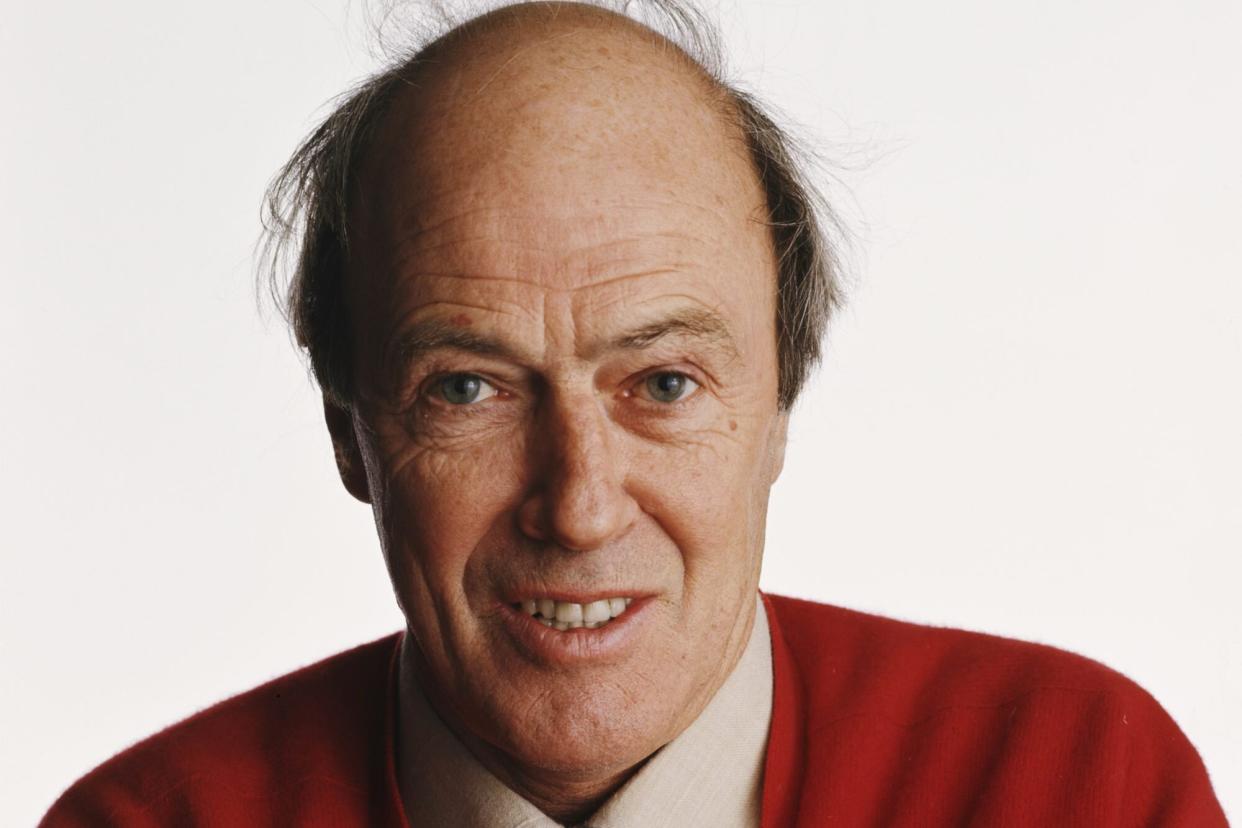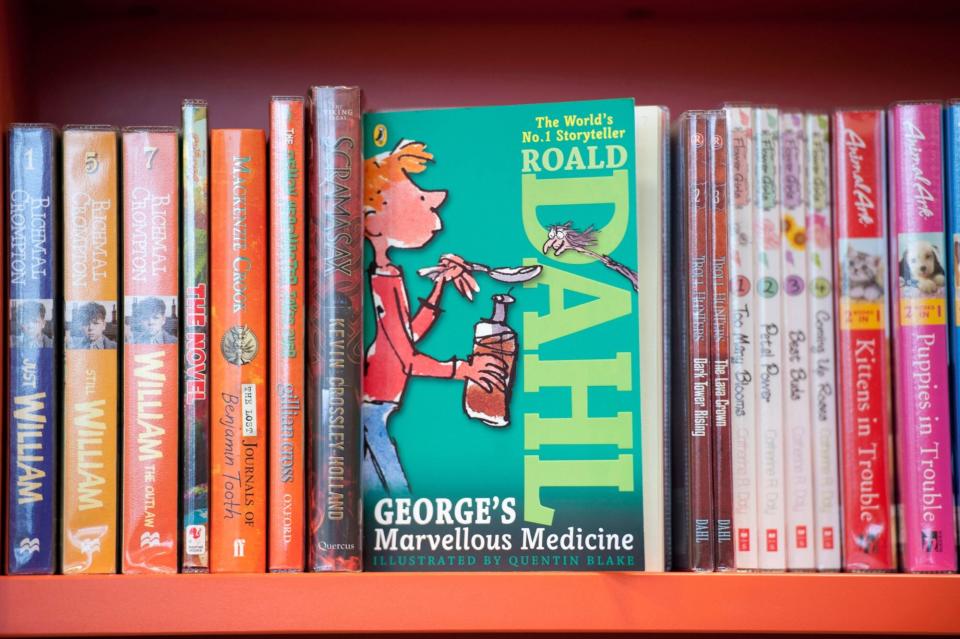Select Roald Dahl Children's Books Edited for Less Offensive and More Inclusive Language

Tony Evans/Getty
New editions of Roald Dahl's books have undergone some changes.
Select works of the children's author — who's known for penning classics such as Charlie and the Chocolate Factory, Matilda, Fantastic Mr. Fox and James and the Giant Peach — have been edited in an effort to remove offensive language and promote more inclusivity, according to a new report from the Telegraph.
RELATED: Read Roald Dahl's Touching Pro-Vaccination Letter Written After His Daughter's Death from Measles
Formerly "fat" and "ugly" characters in Dahl's world of literature are now described with other adjectives. Publisher Puffin wrote in a statement included in the books that "words matter."
"The wonderful words of Roald Dahl can transport you to different worlds and introduce you to the most marvelous characters," the statement reads. "This book was written many years ago, and so we regularly review the language to ensure that it can continue to be enjoyed by all today."
In the Telegraph report, it's revealed that such changes reach far and wide — from the Oompa Loompas in Charlie and the Chocolate Factory now being gender neutral to antagonist Miss Trunchbull in Matilda now being the "most formidable woman" rather than the "most formidable female."

Alamy Stock Photo
Never miss a story — sign up for PEOPLE's free daily newsletter to stay up-to-date on the best of what PEOPLE has to offer, from juicy celebrity news to compelling human interest stories.
The report compared 2001 editions of Dahl's children's books to the 2022 editions, with some changes taking place throughout many of his works. For example, the word "fat" is no longer used in 1978's The Enormous Crocodile, 1961's James and the Giant Peach, 1980's The Twits, and 1983's The Witches. Augustus Gloop, once referred to as a "fat" character from the classic Charlie and the Chocolate Factory story is now simply "enormous."
Previous editions of James and the Giant Peach feature the Centipede singing, "Aunt Sponge was terrifically fat / And tremendously flabby at that," and, "Aunt Spiker was thin as a wire / And dry as a bone, only drier." Both of those lines have been removed entirely in favor of the following: "Aunt Sponge was a nasty old brute / And deserved to be squashed by the fruit," and, "Aunt Spiker was much of the same / And deserves half of the blame."
Similarly, the word "ugly" was scrapped from select Dahl titles, the publication reports. In The Twits, Mrs. Twit is now no longer "ugly and beastly" but simply a "beastly" character.
Additionally, Oompa Loompas in Charlie and the Chocolate Factory are no longer a group of "small men," but rather "small people," whereas the Cloud-Men in James and the Giant Peach are "Cloud-People" in story updates.
RELATED: Dr. Seuss Books Like Horton Hears a Who! Branded Racist and Problematic in New Study
Puffin made the changes alongside the Roald Dahl Story Company and company Inclusive Minds, with a Roald Dahl Story Company spokesperson saying that "it's not unusual to review the language used alongside updating other details, including a book's cover and page layout," per The Guardian.
"Our guiding principle throughout has been to maintain the storylines, characters, and the irreverence and sharp-edged spirit of the original text," the company shared. "Any changes made have been small and carefully considered."
Novelist Salman Rushdie called the changes of Dahl's books "absurd censorship."
"Roald Dahl was no angel but this is absurd censorship," Rushdie wrote on Twitter. "Puffin Books and the Dahl estate should be ashamed."
Roald Dahl was no angel but this is absurd censorship. Puffin Books and the Dahl estate should be ashamed. https://t.co/sdjMfBr7WW
— Salman Rushdie (@SalmanRushdie) February 18, 2023
This is not the first time children's literature has been edited or pulled following reevaluations. In March 2021, Dr. Seuss Enterprises announced that six titles from the author's bibliography were being shelved for good due to racist and insensitive imagery — McElligot's Pool, On Beyond Zebra!, Scrambled Eggs Super!, The Cat's Quizzer, And to Think That I Saw It on Mulberry Street and If I Ran the Zoo.
"These books portray people in ways that are hurtful and wrong," Dr. Seuss Enterprises, the company committed to preserving the work of Theodor Seuss Geisel, stated at the time.
"Ceasing sales of these books is only part of our commitment and our broader plan to ensure Dr. Seuss Enterprises' catalog represents and supports all communities and families," the company added.
